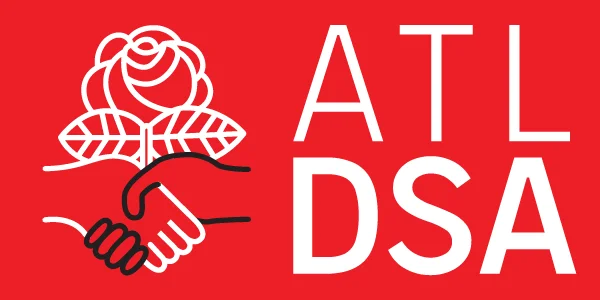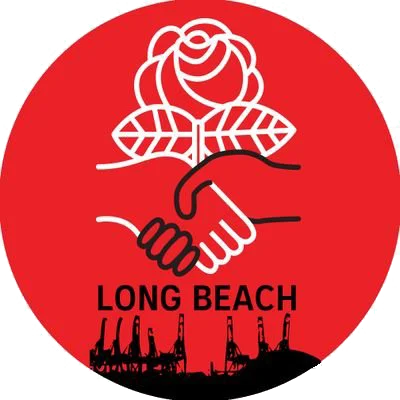

MADSA Solidarity Statement with Representatives Ocasio-Cortez, Omar, Pressley, and Tlaib
The American political establishment has a long history of cynical attacks based on race, gender, national origin, sexuality and more to divide working people against each other. President Trump’s recent statements are the latest chapter in that shameful history. While the animus dividing our society didn’t begin with President Trump, we are seeing from him now a dangerous escalation in targeting both specific elected officials and entire communities, such as the recent ICE raids on undocumented persons. The President, clearly unbothered by the humanitarian disaster he’s created at the border and many other crises, has taken time to attack Representatives Ilhan Omar, Rashida Tlaib, Alexandria Ocasio-Cortes, and Ayanna Pressley.
While President Trump has gleefully had TV sparring matches with many prominent Democrats, these women and their agenda clearly pose an existential threat for him and his political establishment. His attacks this week included telling these women to “go back” to the country they came from. All of them are American citizens and three were born here.
Metro Atlanta Democratic Socialists of America makes clear our full support for Reps. Omar, Tlaib, Ocasio-Cortes, and Pressley and our opposition to these attacks by Trump and the Republican Party. Most Republican party officials and Republican media outlets have sadly and predictably either joined with Trump or excused his actions.
We also denounce statements by Democratic Party members drawing false equivalence between Trump and these representatives, or implying that their anti-capitalist or anti-imperialist positions warrant such attacks. We also encourage the progressive caucus to stand united in solidarity, and not cave to any pressure to denounce each other.
This kind of dehumanizing language doesn’t belong in a locker room, let alone the halls of power. We would defend anyone against attacks like these, but the political and personal courage of these representatives deserves particular acknowledgement. They are at the forefront of the struggle to democratize the economy, rebuild and strengthen our safety net, and protect the vulnerable.
We invite people disgusted by these attacks to not just work towards President Trump’s removal next fall, but to also join us right now — organizing against facism, racism, neoliberalism, xenophobia, and every other form of oppression that has empowered him and his accomplices.
Georgia organizations wishing to co-sign this statement can send an email to info@madsa.ga.

Energy Democracy Now! Public Power Against ConEd
You’re listening to Revolutions Per Minute on WBAI, a socialist radio show and podcast from members of New York City Democratic Socialists of America. NYC-DSA is the biggest chapter of the largest socialist organization in the United States. We are run by our 5,500+ members and organizers who are working together to build democratic socialism in all five boroughs.

Queer Liberation Against Rainbow Capitalism
You’re listening to Revolutions Per Minute on WBAI, a socialist radio show and podcast from members of New York City Democratic Socialists of America. NYC-DSA is the biggest chapter of the largest socialist organization in the United States. We are run by our 5,500+ members and organizers who are working together to build democratic socialism in all five boroughs
https://act.dsausa.org/donate/membership/
https://www.socialists.nyc/events?view=calendar&month=07-2019


Taking a Stand for Justice for Immigrants
Hundreds protested the Trump administration’s atrocious treatment of legal asylum seekers and other immigrants, especially children, at the “Lights for Liberty: A Vigil to End Human Concentration Camps” at Plaza Fiesta in Chamblee July 12, despite the heat and a rain shower. The New Sanctuary Movement of Alanta and about two dozen social justice and immigrant rights organizations sponsored the event, joined by other progressive organizations and many MADSA members. Ga. Representative (District 99) and candidate for Congress Brenda Lopez Romero was keynote speaker. Other speakers included several faith leaders; Roxana Chicas of New Sanctuary; Carlos Medina of the Georgia Latino Alliance for Human Rights (GLAHR); two candidates for the U.S. Senate: former Columbus Mayor Teresa Tomlinson and Clarkston Mayor Ted Terry; and Amilcar Valencia, Executive Director of El Refugio, among others. See Lopez Romero’s speech here.
The Lights for Liberty event took place as Atlanta braced for a weekend of raids on immigrant families announced by President Trump. GLAHR is organizing “ICEwatch” patrols to follow (not confront) ICE and document its activities. Some MADSA members participated Saturday morning. “Ice patrol with GLAHR was great,” says Jeff R. “They’re going all this week in the morning and they think immigration raids will start [Sunday].”
ICEwatch patrols meet 6am at the GLAHR office. To volunteer, contact Kevin Joachin (229-646-0045). Members please say you’re with DSA. Do not volunteer if you are undocumented.
Another protest against the immigrant concentration camps: “Never Again,” will take place at noon on Monday July 15 in front of the ICE office in downtown Atlanta, in coordination with actions nationwide led by Jewish groups, including some against banks that finance the private detention centers.

Socialist City Council & White House w/ Jabari Brisport
In 2017 Jabari Brisport ran a powerful, insurgent campaign as a socialist for New York City Council. He didn’t win, but since then NYC DSA has an impressive string of electoral victories. Has NYC DSA built enough electoral power to get socialists elected to City Council? What about the White House?

Queens is the Future! The Tiffany Caban Campaign
It’s one week after one of the biggest progressive upsets in NYC electoral politics in a generation. Votes are still being counted, but it’s possible that progressives and socialists have propelled Tiffany Cabán to victory and reshaped NY politics and criminal justice for years to come.
We’ll talk about the final vote counting process underway right now (and how you can help!), as well as an analysis on what this means for the criminal justice movement, the dwindling Queens Machine, and DSA.
Sign up for phonebanking or data entry to help Caban over the finish line bit.ly/cabanadmin

A Socialist in Albany: Live with Julia Salazar
You’re listening to Revolutions Per Minute on WBAI, a socialist radio show and podcast from members of New York City Democratic Socialists of America. NYC-DSA is the biggest chapter of the largest socialist organization in the United States. We are run by our 5,500+ members and organizers who are working together to build democratic socialism in all five boroughs.

Climate Justice for New York
You’re listening to Revolution Per Minute on listener sponsored WBAI in NYC broadcasting at 99.5 FM and streaming on your favorite podcast app. To connect with us after the show you can email us at revolutionsnyc@gmail.com or sign-up for our newsletter to get links to what we talk about on the show. You can do that on at our website revolutionsperminute.simplecast.com. You can also find us on twitter at nycRPM.
For years, a broad coalition of New Yorkers have been organizing to pass the Climate and Communities Protection Act, the most ambitious and far-reaching climate bill in the country. Today’s episode we'll be talking about how this groundbreaking bill could finally bring climate justice to New York.

Colonial Violence and the Struggle for Justice in Palestine
You’re listening to Revolutions Per Minute, a socialist radio show and podcast from members of New York City Democratic Socialists of America. NYC-DSA is the biggest chapter of the largest socialist organization in the United States. We are run by our 5,500+ members and organizers who are working together to build democratic socialism in all five boroughs.
To connect with us after the show you can email us at revolutionsnyc@gmail.com or sign-up for our newsletter to get links to what we talk about on the show. You can do that on at our website revolutionsperminute.simplecast.com. You can also find us on twitter @nycRPM.


2019 Long Beach DSA Candidate Statements
The below are statements from candidates seeking election to Steering Committee or Delegate to the National Convention for Long Beach DSA. Members will have an opportunity to submit questions to... Read more »
The post 2019 Long Beach DSA Candidate Statements appeared first on DSA-LB.